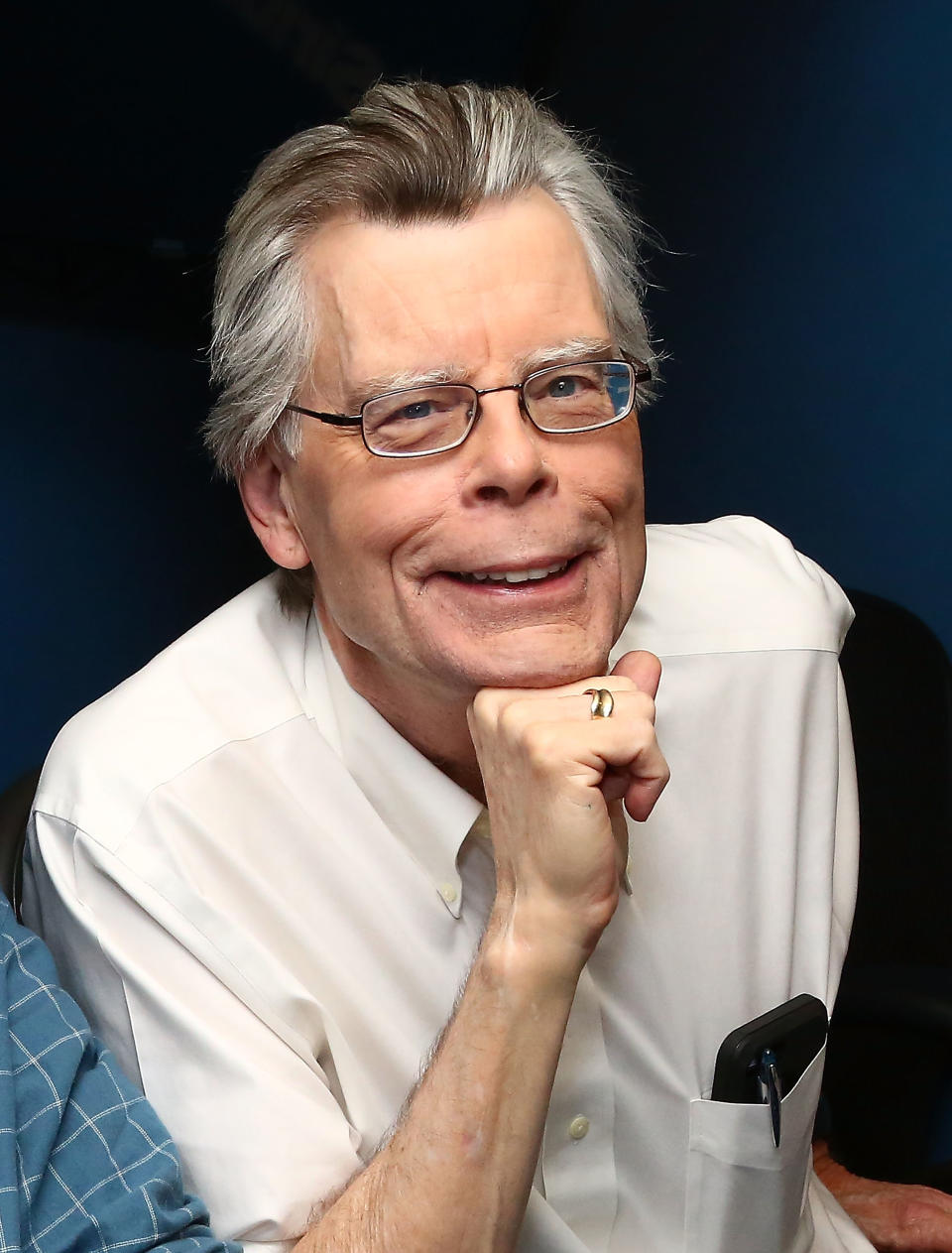Stephen King says the Oscars are 'rigged in favor of white people' in new op-ed
Stephen King is standing by his comments about Oscars diversity, but it doesn’t mean he doesn’t find the system flawed.
The storied writer found himself being slammed on social media earlier this month after the 2020 Academy Awards nominations were announced and they were again criticized for a lack of diversity. King, a member of the Academy of Motion Picture Arts and Sciences (AMPAS) who voted in three non-acting categories, chimed in on social media, saying, “I would never consider diversity in matters of art. Only quality. It seems to me that to do otherwise would be wrong.” His remark was called tone-deaf by critics, who were quick to point out his white privilege and criticize him for thinking diversity shouldn’t be a factor.
King addressed the controversy in an op-ed for the Washington Post titled “The Oscars are still rigged in favor of white people.” The man behind The Shining, Carrie and The Shawshank Redemption wrote that while he thinks “those judging creative excellence should be blind to questions of race, gender or sexual orientation,” he “did not say that is the case today, because nothing could be further from the truth.”

While King says there has been “some” progress in the film community, he pointed to the demographic makeup of Academy Awards voters. He cited women being just 32 percent of the voting body — and minority members 16 percent, which he said is, “Not good enough. Not even within shouting distance of good enough.” And while the academy “invited 842 new members” in 2019, the majority of the Best Picture nominations were “what my sons call ‘man-fiction,’” depicting “fights, guns and many white faces.”
King also wondered how many of the voters really viewed all approximately 60 Best Picture contenders before casting ballots, writing, “There’s no way of checking how many voters actually do, because viewing is on the honor system. How many of the older, whiter contingent actually saw Harriet, about Harriet Tubman, or The Last Black Man in San Francisco? Just asking the question.”
King went on to respond to the criticism waged directly at him, writing, “Where am I in this diversity discussion? Fair question. The answer is white, male, old and rich... It would be absurd to dispute that and equally absurd to apologize for it. The first two traits are genetic, and the last two are the work of Time the Avenger.”
King said he’s “proud” of his track record when it comes to the “strong female characters” he’s created, spanning from Carrie to the upcoming miniseries Lisey’s Story based on his 2006 novel.
And he said he’s long been of the belief about being “blind” to color — though he’s aware that he lives in a world “rigged in favor of the white folks.”
“When people complained on social media a few years ago about Idris Elba being cast as Roland Deschain, the gunslinger at the center of The Dark Tower books, I replied that I didn’t care what the character’s skin color was, as long as he could draw fast and shoot straight,” King wrote. And that response “reflects my overall attitude that, as with justice, judgments of creative excellence should be blind. But that would be the case in a perfect world, one where the game isn’t rigged in favor of the white folks.”
He continued, “Creative excellence comes from every walk, color, creed, gender and sexual orientation, and it’s made richer and bolder and more exciting by diversity, but it’s defined by being excellent. Judging anyone’s work by any other standard is insulting and — worse — it undermines those hard-won moments when excellence from a diverse source is rewarded (against, it seems, all the odds) by leaving such recognition vulnerable to being dismissed as politically correct.”
He ended by noting, “We don’t live in that perfect world, and this year’s less-than-diverse Academy Awards nominations once more prove it. Maybe someday we will. I can dream, can’t I? After all, I make stuff up for a living.”
Read more from Yahoo Entertainment:
Want daily pop culture news delivered to your inbox? Sign up here for Yahoo Entertainment & Lifestyle’s newsletter.


